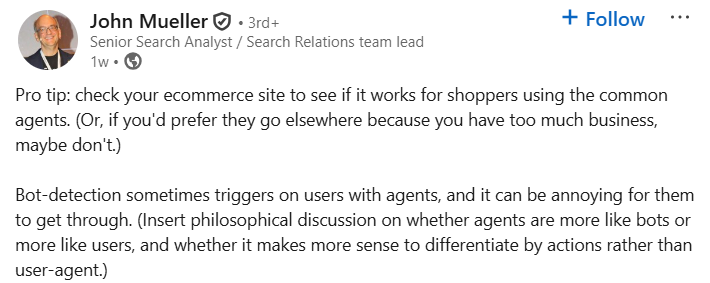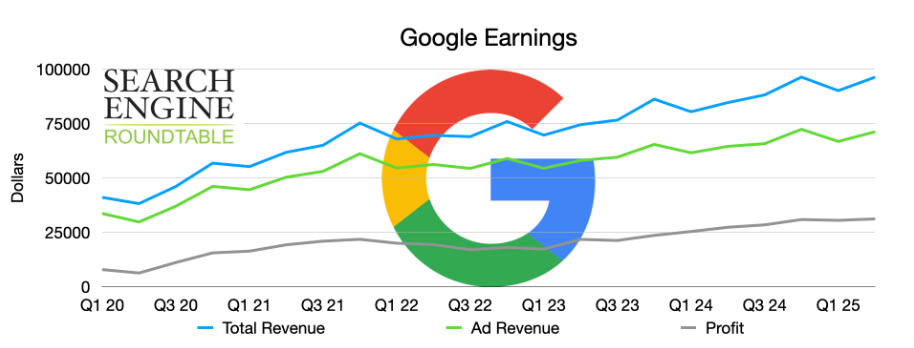From AI Mode hitting the UK to OpenAI launching their agentic AI, it’s been a big fortnight for the search industry. Here’s a July-end roundup of the updates that matter most for your digital strategy.
Updates are colour coded by importance:
🔴 Major developments likely to impact strategy
🟡 Worth watching or understanding
🟢 Informative - but lower impact for most
Google Search
🔴 AI Mode rolls out across the UK
Google launched AI Mode across the UK in late July, with rollout ongoing. Not everyone has access yet, but it will become more widely available over the next week or so.
We cover the launch in detail here: Google AI Mode Now Live in the UK: Everything You Need to Know
For some background on AI Mode development, check out our pre-launch coverage.
🔴 Google June 2025 core update now complete
Google’s latest broad core update finished rolling out on July 17.
As a core update, Google reminded that the focus was to generally improving the search experience, with all content types falling within the scope of the update. Despite this, observations during and after the rollout have revealed some unexpected result.
Read our full overview of the June 2025 core update here.
🟡 AI-generated summaries hit Google Discover
Google’s latest move to expand generative AI across their services is concerning for news publishers.
News stories appearing in Google Discover feeds may now feature AI-generated summaries instead of the usual snippet or excerpt taken from the article.
For those unfamiliar with Google Discover — it’s a personalised content feed within the Google app and on mobile browsers that primarily serves news articles based on the user's activity and preferences.
For news publishers…
In 2025, Discover accounts for up to 60% of some news publisher’s total Google traffic. Only a couple of months ago, it was lauded as a fantastic way to offset downturns in clicks from search due to AI Overviews.
With AI-generated overviews now live in Discover, it’s a reasonable assumption that clicks will go into decline from this source as well.
Adapting may require some significant strategising. Here are some tips to get you started:
- Add value beyond the summary: Focus on insights, analysis, or storytelling AI can’t replicate.
- Optimise intros smartly: Structure lead paragraphs to inform and entice further reading.
- Strengthen headlines: Make them compelling enough to stand out against summaries.
- Build direct channels: Invest in newsletters, SEO, and owned platforms to reduce reliance on a single unpredictable channel such as Discover.
- Track & test: Use Discover performance data to adjust formats and content strategies.
🟡 More research showing clicks are in decline
The Pew Research Centre released a report towards the end of July showing Google users only click through to a website 8% of the time if an AI Overview is present on the results page.
This is compared to a 15% click-through rate on results pages served without an AI Overview.
For site owners…
This only reinforces what is already widely known: AI Overviews are stealing clicks. However, as previously discussed on the TDMP blog, fewer clicks isn’t always a bad thing.
For websites that rely on ad impressions to generate revenue, or for creators with no hard sell who just want their content to be seen, declining clicks is a big problem. But for business sites offering various solutions, it’s a different story.
The clicks you’re losing are people looking for a simple answer to a simple query; these were unlikely to convert. The clicks you do get are higher quality, as the AI Overview provides extensive context before they land on your website and consider your offering.
However, you need to be present in these conversations in order to contend for these valuable clicks. This is where we can help.
At TDMP, AI optimisation is integrated into our SEO strategies, ensuring our clients are present and prominent in AI-generated search results, making them the natural option when users are ready to click. Contact us today to discuss your SEO requirements.
SEO
🔴 OpenAI launch ChatGPT Agent that takes action on users’ behalves
OpenAI has launched the ChatGPT Agent, now rolling out to Pro users, with Plus, Team, and Enterprise access coming soon. This iteration of ChatGPT can browse, research, take actions, and complete multistep tasks like booking travel, analysing competitors, or creating presentations.
The agent combines three parts:
- Operator: browses and interacts with websites
- Deep research: performs complex, multi-source research
- Connectors: integrates with apps like Gmail or calendars for end-to-end task automation
It uses these tools to act on behalf of users autonomously but with user approval at key steps.
For site owners…
Even when AI agents are acting on behalf of users, they still need to find, understand, and act on your site’s content. If your site is structured well, agents can choose your products, complete transactions, or recommend you — meaning you still get the conversion, even if a human never clicks through.
Being that OpenAI’s ChatGPT agent is behind a paywall (for now), take-up will be gradual, but as agentic AI becomes more popular among the general public over time, it will of course have a broader impact on how users access information and complete transactions.
In fact, Google’s John Mueller has already advised owners of ecommerce sites should assess whether their products are accessible to AI agents shopping on users’ behalves — see below:

Source: LinkedIn
This means optimising not just for visibility, but for actionability, ensuring content and interfaces are structured in a way that AI agents can understand, navigate, and act on effectively.
In practice, this kind of optimisation centres around disambiguation, i.e. making sure content and UIs are clearly labelled, consistent, and machine-readable.
🟡 Research shows how ChatGPT and AI Overviews outputs differ
New research from BrightEdge shows a clear divergence in how Google and ChatGPT interpret search intent.
While Google leans toward informational content, acting like a research assistant, ChatGPT favours actionable tools and apps, behaving more like a decision-making coach.
For marketers…
This matters because it reveals two fundamentally different content ecosystems, meaning building visibility in each requires distinct strategies.
To improve performance across both platforms, brands need to…
1. Match the platform’s role
- On Google, focus on in-depth, authoritative content that supports research and learning.
- On ChatGPT, create actionable resources — tools, calculators, how-to kits, or step-by-step guides.
2. Segment by intent:
Action-oriented queries (e.g. "how to learn Python", "find a doctor") need tool-based responses for ChatGPT and explainer content for Google.
3. Explore divergence by niche:
Tailor accordingly.
Paid media
🟡 Google and Microsoft ad revenue up yet again
Google has reported a 10.4% YoY increase in ad revenue for Q2, following a sequence of big gains in previous quarters.

Source: Search Engine Roundtable
Microsoft also reported an increase in ad revenue, securing 21% growth for the third quarter running.
For advertisers…
This signals higher advertiser demand, likely leading to more competitive auctions and rising CPCs, which has a direct impact on the performance of your ads.
Assuming all other variables remain static, with every percent point CPC inflation rises, you lose the same percentage in clicks. For example, if CPCs rise 5% since setting your budget, your campaign will earn 5% fewer clicks.
Here are a few tips to minimise the impact of rising costs per click, beyond simply increasing your ad spend:
- Double down on creative and relevance: Strong ad copy, visuals, and landing pages are key to maintaining efficiency as costs rise.
- Lean into automation: Tools like Performance Max can help scale, but monitor performance closely.
- Prioritise high-intent audiences: Focus spend where ROI is strongest instead of spreading budgets thin.
- Benchmark regularly: Compare your account performance to industry norms to stay competitive without overspending.
Concerned about costs getting out of hand?
TDMP is a Google Premier Partner paid media agency with a proven track record of increasing campaign impact while reducing costs. Contact us today to get started maximising your return on ad spend.
🟢 US advertisers get competitor-based recommendations in Google Ads
US advertisers may now see a new type of recommendation in Google Ads, based on the ad performance of their direct competitors.
For example, a recommendation might suggest raising your CPA target if your impressions are dropping while a competitor’s impressions are rising.
For UK advertisers…
If this feature were to come to the UK, it could provide some interesting optimisation opportunities. But remember, your competitors will get the same intel on your campaigns as you get on theirs, so…
- Use the insights to refine your strategy, not just react.
- Focus on your unique strengths and audience rather than chasing every competitor move.
- Test changes incrementally to avoid overcorrecting based on limited data.
- Combine competitor insights with your own performance metrics for balanced decisions.
- Keep privacy and brand safety top of mind when adapting to new recommendations.
Stay current with TDMP
The AI boom is still booming, and both organic and paid search are evolving rapidly. Need support adjusting your digital strategy for AI search? TDMP can help — let’s talk.

